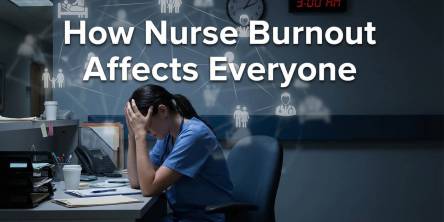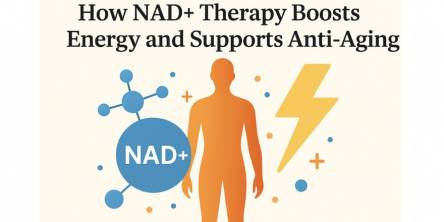Could Intensive Outpatient Be the Missing Link in Your Recovery Plan?

Recovery isn’t one-size-fits-all. You may have already realized that. Maybe you've tried inpatient treatment and felt like it helped, but it didn’t quite cover what came next. Or maybe you're managing day-to-day sobriety but need more structure without being pulled completely out of your regular life. That’s where intensive outpatient programs come into the picture.
They're often overlooked or misunderstood, yet they can play a critical role in long-term recovery. If you feel like something’s missing between treatment and fully stepping back into everyday life, this could be what bridges that gap.
What Exactly Is an Intensive Outpatient Program?
An intensive outpatient program, or IOP, sits somewhere between inpatient treatment and standard therapy. It’s more structured than traditional weekly sessions but doesn’t require you to live on-site. You still sleep in your own bed, go to work, and maintain responsibilities. But several hours a week are carved out for focused, ongoing support.
Typical IOPs involve:
● Multiple sessions per week – Usually around 3 to 5 days a week for a few hours each day
● Group therapy – A space to build connection, accountability, and learn from others
● Individual counseling – Tailored work with a therapist to dig into deeper personal challenges
● Skill-building – Tools to handle stress, triggers, and everyday situations without relapsing
● Psychoeducation – Learning about addiction, mental health, coping strategies, and relapse prevention
That structure gives enough intensity to keep recovery at the forefront without removing someone from their normal routine.
Who Is It Best For?
IOPs aren’t for everyone. But they can be the right fit for people in specific stages or situations. For example:
● You’ve completed inpatient or residential treatment and need structured follow-up that keeps momentum going.
● You’re experiencing early signs of relapse and want to get back on track before things get worse.
● You have a stable home life and support system, so you don’t need full-time supervision but still want focused help.
● You’re juggling work, family, or school, and full-time treatment would cause disruption you can’t manage right now.
It’s not a watered-down version of inpatient care. It’s a different tool for a different need.
Why It Fills a Critical Gap
One of the biggest challenges in recovery is the transition back into the real world. That’s often where cracks start to form. You leave the structure of treatment, feel motivated and clear, but then life hits — stress, triggers, familiar routines. Without the right support, relapse risk rises.
IOP offers something crucial in that transition:
Consistency
You don’t go from daily support to once-a-week therapy overnight. IOP helps ease that shift with continued care.
Real-life integration
Since you’re still living at home, you get to practice what you’re learning in therapy in real time. That kind of real-world application speeds up skill development and self-awareness.
Accountability
With regular check-ins and group sessions, you’re never drifting too far from the core focus of your recovery.
It doesn’t just help you stay sober. It helps you build a life around that sobriety.
What Makes It Different From Standard Outpatient Therapy?
If you’ve only experienced once-a-week counseling, an IOP can feel like a much deeper dive. The difference isn’t just frequency. It’s also in the structure, the variety of sessions, and the intensity.
More hours, more frequency
Instead of 1 session a week, you’re attending several hours over multiple days.
Group plus individual therapy
You benefit from both personal work and peer interaction.
Recovery-focused topics
Sessions are usually designed specifically around substance use, coping skills, emotional regulation, and relapse prevention. Standard therapy might touch on these, but IOP stays focused.
This kind of focus creates faster progress and can be especially effective when you’re facing complex emotional patterns tied to substance use.
What to Expect Day-to-Day
Daily life in an IOP varies depending on the program, but most have a core rhythm that makes things predictable and manageable.
You’ll typically attend a mix of group and individual sessions, with themes ranging from emotional resilience to communication skills. Some days might focus on practical strategies for avoiding triggers. Other days might explore deeper emotional work.
The overall tone is one of community and growth. You’re not just sitting in a chair being lectured. You’re participating, listening, sharing, and learning with others who understand what you’re working through.
Outside the program hours, you go to work, handle family responsibilities, and continue living your life. That blend of structure and freedom is part of what makes IOPs so effective.
How to Know If You’re Ready
Some people wait too long to seek this kind of help. They assume that because they’re not in full relapse, they’re doing “okay enough.” But if any of the following feels familiar, it’s worth considering:
● You feel like your sobriety is starting to slip or become unstable.
● You’ve recently finished a higher level of care and are unsure how to maintain progress.
● You’re feeling isolated and disconnected from your recovery community.
● You need support, but can’t step away from work or family responsibilities.
● You’re struggling with emotional regulation or overwhelming stress that could threaten your progress.
IOPs are designed for that in-between space. If you feel like your recovery isn’t crumbling but also isn’t thriving, that’s a valid reason to take action.
When the Next Step Isn’t a Leap
Not every part of recovery needs to be dramatic. Sometimes the most important steps are the quieter ones. The ones that fit into your real life and give you strength over time, not just in a controlled environment.
If you’ve been looking for something that offers structure without shutting you off from your daily responsibilities, intensive outpatient could be that next step. Not extreme, not overwhelming. Just what you need, when you need it.
Recovery is a process, and IOP might just be the piece that makes it whole.
Similar Articles
Most people think health problems start suddenly. One day you feel fine, the next day something is wrong. In reality, most health issues develop slowly .They grow quietly in the background while life keeps moving.
The start of a new year is a natural time to pause, reflect, and think about how you want to feel in the months ahead. For those over 60, a fresh start does not mean setting unrealistic resolutions or making drastic changes.
Picture this: You're parked at your workspace, battling to focus on what should be a straightforward five-minute task. That afternoon slump? It's demolishing you today.
Joint pain and arthritis are common health issues that tend to become more intense during the winter season
Discover the benefits, challenges, and future of locum medical jobs. Learn how locum recruitment agencies support flexible, diverse career opportunities for healthcare professionals seeking dynamic work environments.
Burnout in the healthcare environment is a significant and growing crisis.
NAD+ therapy restores cellular energy, enhances metabolism, and promotes anti-aging by supporting DNA repair and improved overall vitality.
Seasonal Affective Disorder (SAD) is a type of depression linked to seasonal changes, most commonly seen during the late fall and winter months when sunlight exposure decreases
Enhance sleep comfort and support with a mattress topper queen. Discover how the right topper improves pressure relief, temperature control, and rest.









